Graduate News+Events
July 2020: We are pleased to announce that The Medieval Studies Workshop is being supported by a generous gift from Mr. Faizal N. Syed, MBA ’93.
Explore some of our past events below!

On March 3, 2020, Jesús R. Velasco, Professor of Medieval and Early Modern Studies (Columbia University) presented his talk, "The Soul's Storytelling." The event was sponsored by the Department of Romance Languages & Literatures and the English Department.

On May 31, 2019, Fiona Griffiths, a historian of medieval Western Europe at Stanford University, gave a presentation on campus thanks to the collaboration of The Center for the Study of Gender and Sexuality.
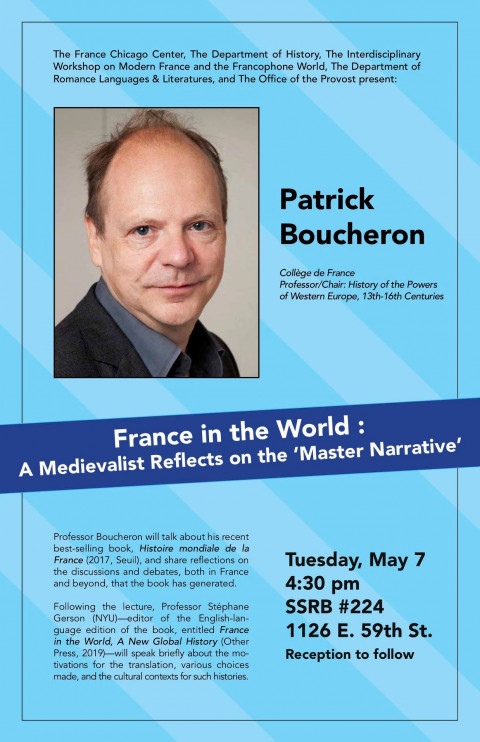
On May 7, 2019, Professor Patrick Boucheron of the Collège de France presented his recent best-selling book, Histoire mondiale de la France (2017, Seuil) while sharing his reflections on the discussions and debates, both in France and beyond, that the book has generated. Following Boucheron's presentation, professor Stéphane Gerson (NYU)—editor of the English-language edition of the book— spoke about the motivations for the translation, various choices made, and the cultural contexts for such histories.
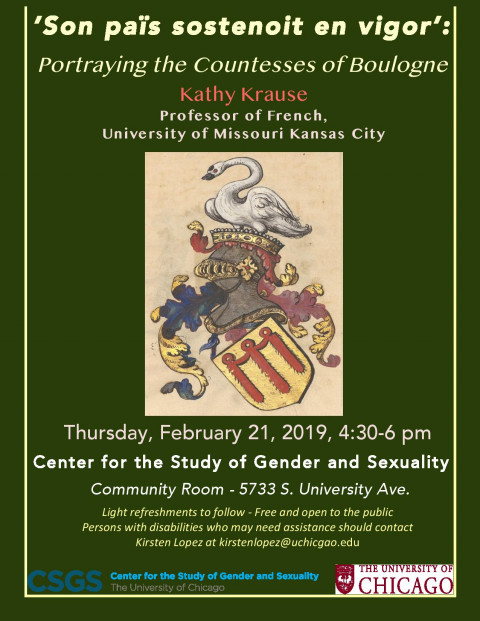
On February 21, 2019, Kathy Krause, Professor of French at the University of Missouri Kansas City, gave a public talk entitled “‘Son païs sostenoit en vigor’: Portraying the Countesses of Boulogne.”
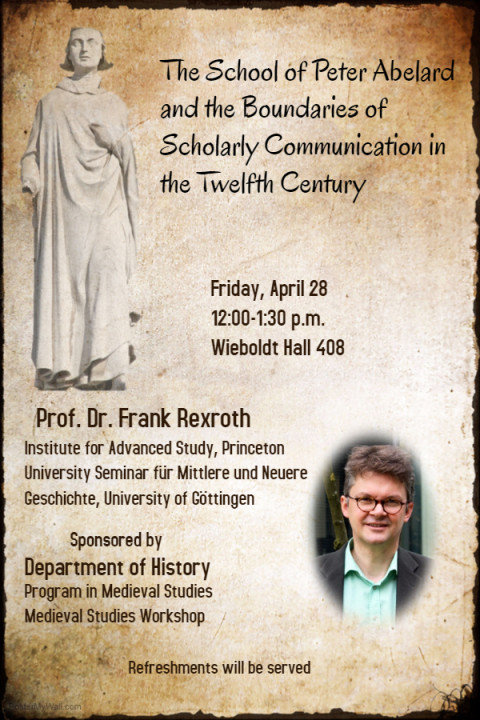
On April 28 2018, Dr. Frank Rexroth (School of Historical Studies, Institute for Advanced Study, Princeton University; Seminar for Mittlere und Neuere Geschichte, University of Göttingen, Germany) gave a talk at the University of Chicago on ""The school of Peter Abelard and the boundaries of scholarly communication in the twelfth century." The event was sponsored by the Department of History and the Undergraduate Program in Medieval Studies.
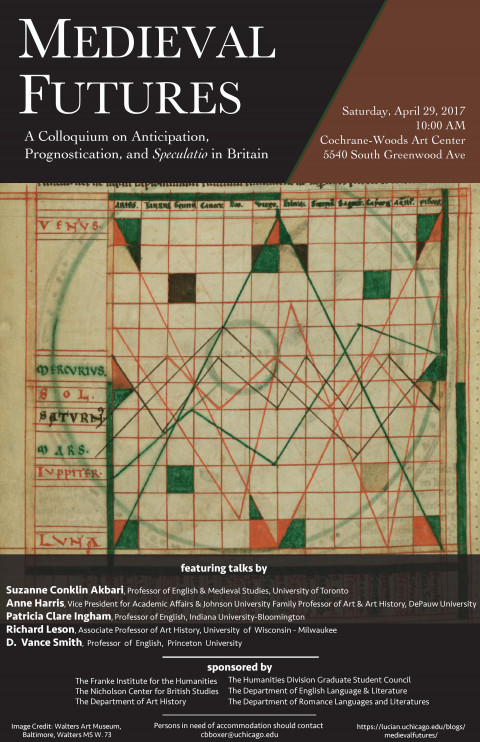
On April 29, 2017, this event theorized questions of futurity from a variety of perspectives from multidisciplinary scholars, especially as they relate to the aesthetic production of medieval Britain. A keynote lecture was be delivered by Professor Suzanne Conklin Akbari (University of Toronto). Closing remarks were offered by Julie Orlemanski (Department of English Language and Literature, University of Chicago).
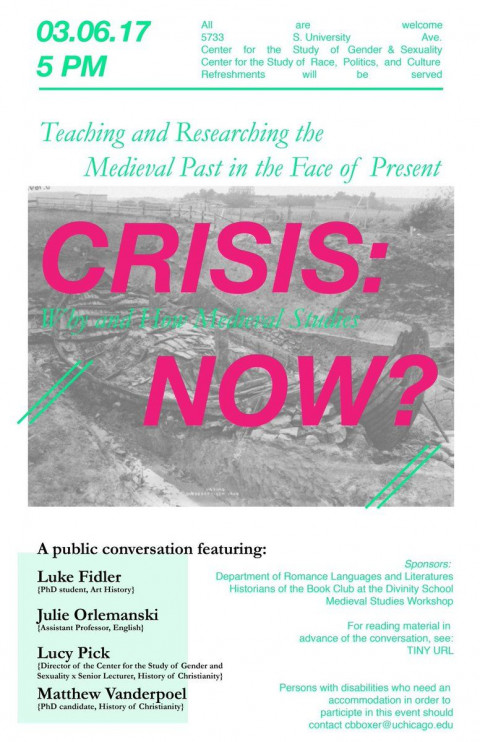
How might we understand the actions of studying, interpreting, and teaching the Middle Ages, given the urgency of contemporary circumstances? There are many approaches to this question, but four stand out to us. We ask: (1) How is present crisis (however defined) already internal to methods of teaching and researching the Middle Ages? (2) How is the medieval past integral to the constitution of modernity, including its calamities and turning points? (3) How can the practices of medievalist pedagogy and the organization of medievalist institutions and communities best respond to injustice and inequality? and (4) What resources does the medieval past hold for thinking anew about the now? On February 6, 2017, we explored these questions and others' experiences of Medieval Studies in the face of present crisis.